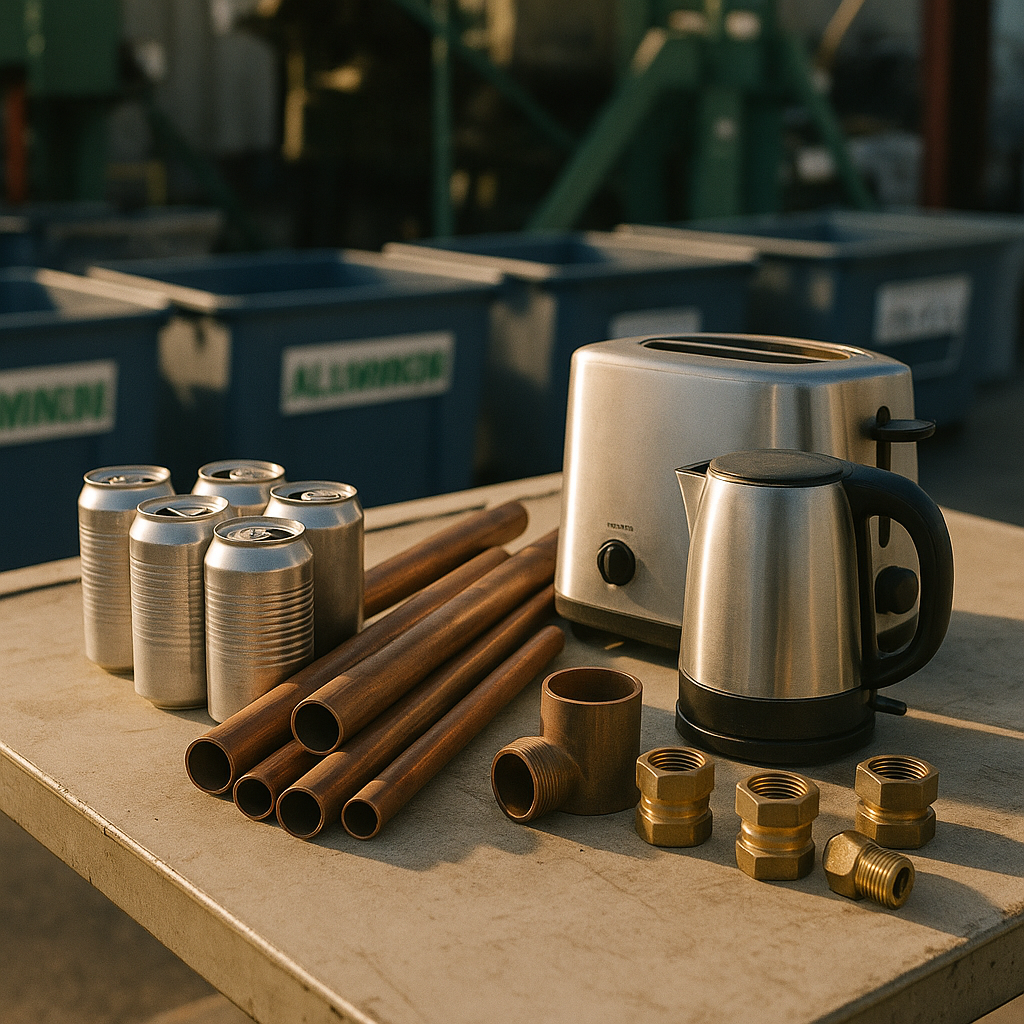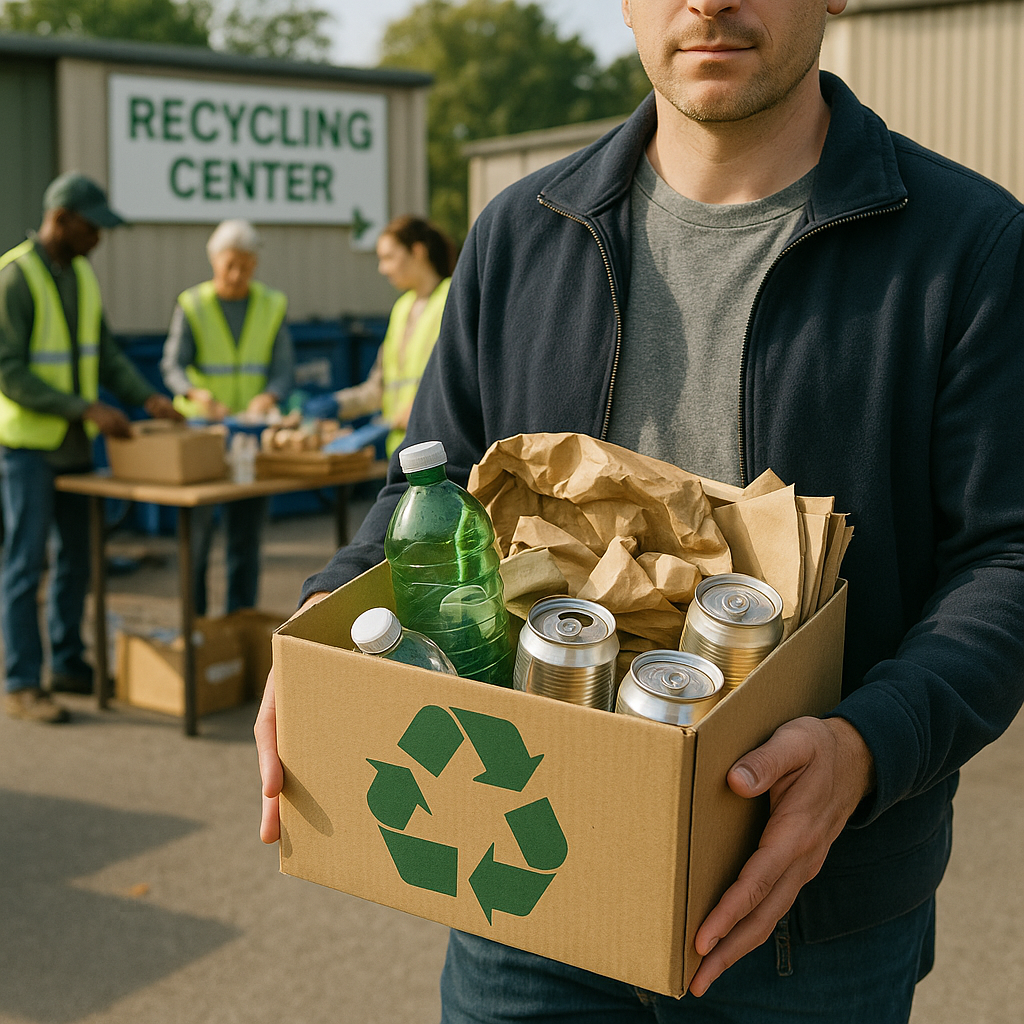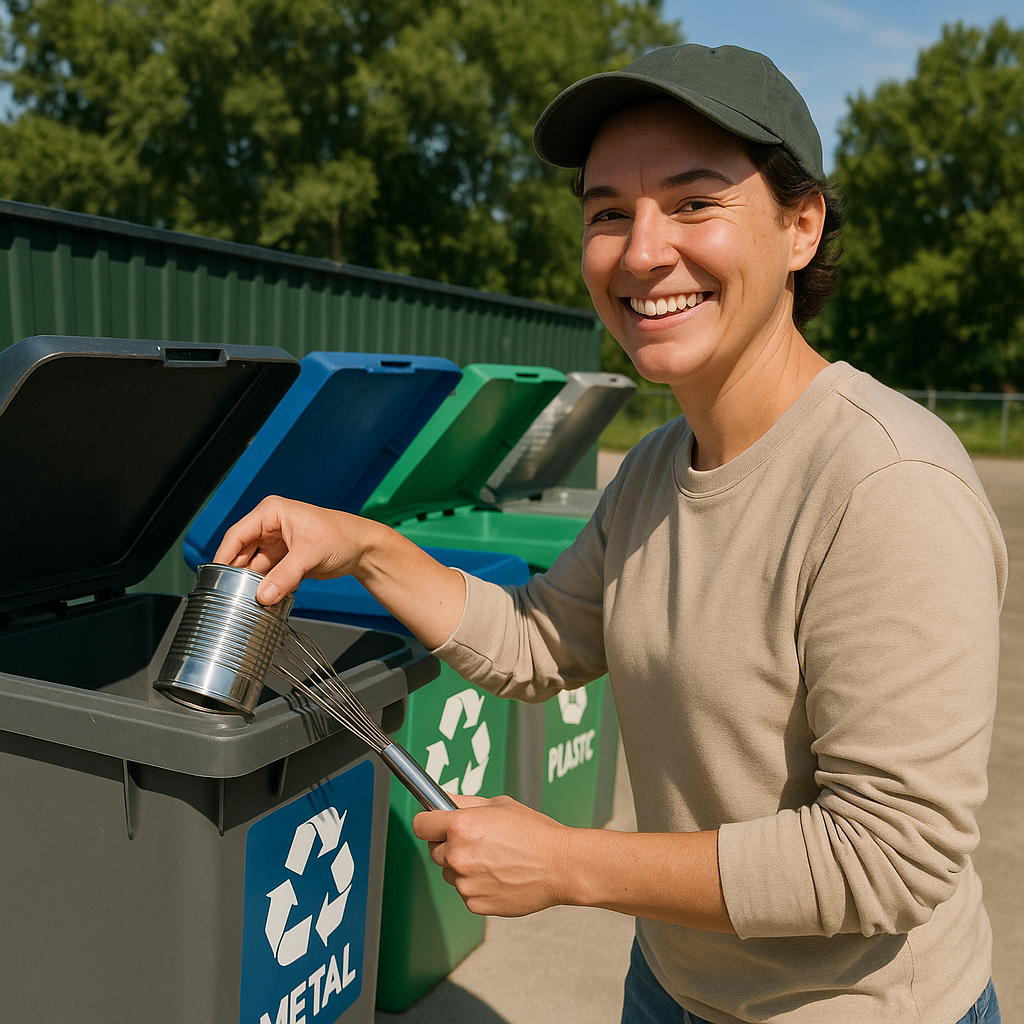5901 Botham Jean Blvd, Dallas, TX 75215
Metal Drop Off Centers: What They Accept, Recycling Benefits, and How to Earn Cash
September 17, 2025Metal drop-off centers are specialized facilities where individuals and businesses can bring unwanted scrap metal for recycling. These convenient collection points serve as the initial critical link in the metal recycling chain, accepting everything from old appliances and construction debris to everyday metal items that might otherwise end up in landfills.
Unlike regular waste disposal systems, metal drop-off centers are specifically designed to handle various types of recyclable metals. They play a vital role in sustainable waste management by diverting valuable resources from landfills and reintroducing them into the manufacturing stream. This process not only reduces environmental impact but also conserves significant energy compared to producing metals from raw ore.
The importance of these facilities extends beyond environmental benefits. Metal recycling centers contribute to local economies by creating jobs, generating revenue through material sales, and helping communities meet their sustainability goals. With the United States recycling over 130 million tons of scrap metal annually, these centers have become essential infrastructure in our transition toward a more circular economy.
What Types of Metal Can Be Dropped Off?

Most recycling facilities categorize metals into two primary groups. Ferrous metals contain iron and are identifiable using a simple magnet test. Non-ferrous metals, which lack iron, typically command higher prices due to their superior properties and limited supply.
Ferrous Metals
Ferrous metals adhere to magnets and constitute the bulk of scrap metal recycling volume. These materials are abundant and vital to recycling programs.
- Steel – Found in appliances, furniture frames, tools, and structural materials
- Iron – Common in older bathtubs, boilers, radiators, and some cookware
- Cast iron – Used in older pipes, some cookware, and automotive parts
- Heavy melting steel – Prepared pieces smaller than 60″ x 24″ over ¼″ thick
While ferrous metals generally fetch lower prices per pound, their availability and weight make them worthwhile to recycle. Many facilities prefer these items to be cleaned of non-metal attachments when possible.
Non-Ferrous Metals
Non-ferrous metals do not stick to magnets and are generally more valuable in recycling markets. These materials resist corrosion more effectively, conduct electricity more efficiently, and are lighter than ferrous options.
- Aluminum – From beverage cans, window frames, car parts, and siding
- Copper – Found in wiring, pipes, electronics, and roofing materials
- Brass – Common in plumbing fixtures, musical instruments, and decorative items
- Bronze – Used in statues, bearings, and specialized hardware
- Lead – Found in batteries, wheel weights, and some older pipes
- Stainless steel – Present in kitchen appliances, sinks, and food service equipment
Most recycling centers pay significantly more for non-ferrous metals, particularly clean copper and brass. Preparation requirements vary, so check with your local facility before dropping off these materials.
Common Household Items Accepted
Recycling centers typically accept a wide range of metal-containing items from homes and businesses. Most facilities welcome the following:
- Appliances – Refrigerators, washers, dryers, microwaves (may require refrigerant removal first)
- Automotive parts – Engines, transmissions, radiators, car batteries, and catalytic converters
- Electronics – Computers, cables, and other devices (some components may require special handling)
- Kitchen items – Pots, pans, silverware, and metal food containers
- Structural materials – Metal roofing, gutters, siding, and fencing
- Miscellaneous items – Metal furniture, bicycles, tools, and hardware
Most centers require items to be at least 50 percent metal to qualify for recycling. Some facilities may ask you to separate different types of metals before arrival to streamline processing and maximize value.
Contact your local recycling facility before transporting large items. Some centers have specific requirements for appliances containing refrigerants or electronic components that need certified removal processes.
What Are the Benefits of Using Metal Drop Off Centers?

Environmental Conservation Through Resource Preservation
Metal drop-off centers play a crucial role in conserving our planet’s finite resources. By recycling metals instead of extracting new ones, we significantly reduce the need for mining operations that cause habitat destruction, soil erosion, and water contamination. Taking your scrap metal to a drop-off center helps preserve natural resources for future generations.
The energy savings from metal recycling are substantial. Recycling aluminum saves up to 95% of the energy required to produce new aluminum from raw materials. Steel recycling is similarly efficient, conserving 74% of the energy needed for new steel production. These energy savings directly translate to reduced fossil fuel consumption and lower greenhouse gas emissions.
Environmental research shows that recycling one ton of steel prevents the release of approximately 2.1 metric tons of carbon dioxide equivalent. This reduction aids communities in combating climate change while improving local air quality.
Reducing Landfill Waste
Metals don’t decompose in landfills. Disposing of metal items in regular trash means they occupy valuable landfill space indefinitely. Some scrap metals contain hazardous substances like lead and mercury that can leach into soil and contaminate groundwater sources.
Metal drop-off centers ensure these materials are properly processed and kept out of landfills. The Steel Recycling Institute reports that recycling one ton of steel conserves 2,500 pounds of iron ore, 1,400 pounds of coal, and 120 pounds of limestone. By using drop-off centers, you directly contribute to waste reduction in your community.
Financial Incentives Through Buyback Programs
One of the most appealing aspects of metal drop-off centers is the opportunity to earn money for materials you no longer need. Many facilities offer competitive pricing for various metals based on current market rates. Common items like old appliances, car parts, and aluminum cans can be converted into immediate cash.
For individuals, selling scrap metal provides a reliable source of supplemental income. A systematic approach to collecting and recycling metal items can yield several hundred dollars monthly with minimal investment. During economic downturns, this additional income becomes particularly valuable.
Businesses also benefit financially from metal recycling. Companies in construction, manufacturing, and automotive sectors can offset operational costs by selling unused or waste metal materials instead of paying disposal fees. This practice not only generates revenue but also reduces waste management expenses.
Supporting Local Economic Growth
The metal recycling industry creates substantial economic activity in communities nationwide, generating over $105 billion annually and supporting more than 500,000 jobs across the United States. These positions include collection specialists, processing facility workers, and administrative staff.
When you use metal drop-off centers, you contribute to this economic engine. Recycling facilities purchase materials from local residents and businesses, keeping money circulating within communities. They also generate tax revenue that funds essential public services like schools, roads, and emergency response systems.
Beyond direct employment, the industry creates opportunities throughout the supply chain. Equipment manufacturers, transportation companies, and technology providers all benefit from a robust recycling sector. This ripple effect strengthens local economies and builds resilience against economic downturns.
Conclusion: Making Metal Recycling a Regular Habit

Metal recycling is one of the standout success stories of the circular economy. Regular habits of recycling metal can notably reduce environmental impact while conserving essential natural resources. By integrating metal recycling into waste management routines, individuals and businesses help cut greenhouse gas emissions by up to 300 million tons annually and lessen the reliance on environmentally damaging mining.
The advantages go beyond environmental protection. Recycling metal offers significant cost savings and economic opportunities. Using scrap steel rather than virgin ore decreases water usage by 40% and reduces mining waste by 97%. This practice ensures metals—which retain their properties when recycled repeatedly—stay in circulation instead of filling landfills.
For assistance with your metal recycling needs, contact Okon Recycling at 214-717-4083. Our team can help you establish an effective recycling system that transforms your metal waste into a valuable resource while supporting sustainability goals.
